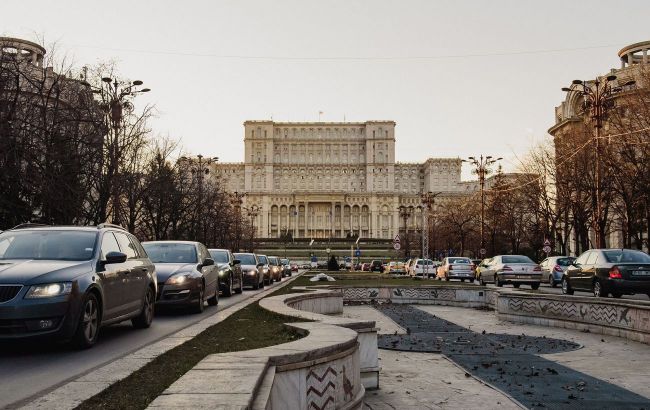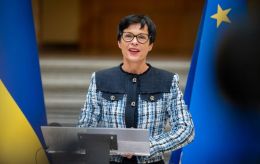Pro-European party in the lead in Romania's parliamentary elections: Details
 Photo: Romanian parliament building (Getty Images)
Photo: Romanian parliament building (Getty Images)
In Romania's parliamentary elections, preliminary results after 99.45% of the votes counted show that the ruling pro-European Social Democratic Party (PSD) has secured victory. However, in second place is the far-right Alliance for the Union of Romanians, Reuters reports.
Thus, the Social Democratic Party (PSD) received 22.6% of the votes, while the Alliance for the Union of Romanians received 18.2%.
Meanwhile, the centrist opposition party Save Romania Union obtained 12.1%, the liberals 14.4%, and smaller far-right parties (SOS and POT) gained 7.6% and 6.3%, respectively. The political force representing ethnic Hungarians, UDMR, received 6.5%.
It is noted that after the first round of the presidential elections, in which the far-right Călin Georgescu emerged victorious, support for radical forces has significantly increased. Given the differences among parties regarding economic reforms and budget policies, this could create challenges for forming a government led by the PSD.
Political experts point out that these elections have become a reflection of the country's social divide. The EU's poorest regions require investment and internal disputes and corruption scandals have weakened the positions of pro-European forces.
Sergiu Mișcoiu, a professor of political science at Babeș-Bolyai University, explained that the PSD is likely to play a central role in any coalition negotiations.
In his view, the results indicate "the most fragmented political spectrum since 1990."
"A coalition with centrist parties is more likely than with the hot potato extremists. And much depends on who becomes president," noted political analyst Radu Magdin.
Elections in Romania
Since the fall, Romania has been undergoing political battles for parliamentary seats and the presidency. The first round of presidential elections showed that pro-Russian far-right forces in Romania are increasing their influence.
An absolute surprise was the victory of far-right candidate Călin Georgescu in the first round, who not only opposed supporting Ukraine but also advocated for improving relations with Russia, as opposed to strengthening ties with EU countries.
Due to numerous pieces of evidence of Russian interference in the presidential elections, the country's Constitutional Court postponed the decision to recognize the election results.
Meanwhile, Romania's Central Election Commission suggested that the first round might need to be repeated.
The results of Romania's presidential and parliamentary elections may affect Bucharest's international policy, particularly regarding support for Ukraine and relations with European countries.
Previously, the European Commission suspected TikTok of possibly influencing the presidential election in Romania.

